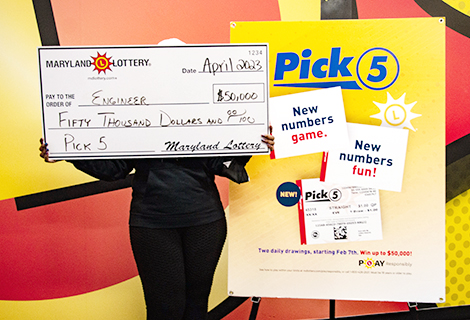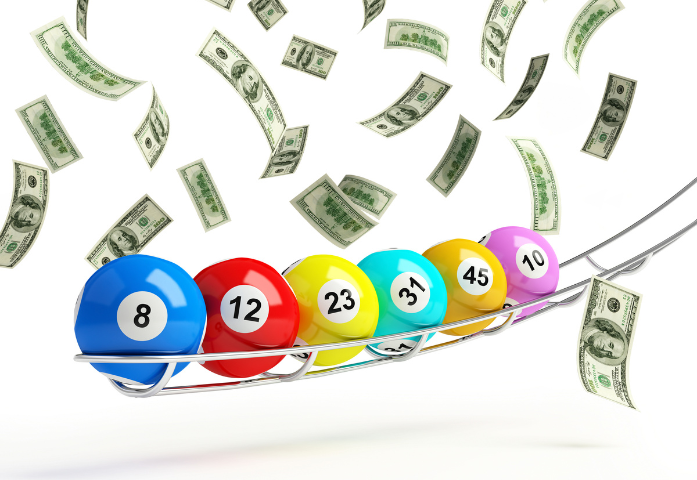Inspiration for many a lottery pick

My main goal is to help my family and help as many other people as I can. pick 3 after meditating and helping others. Thanks for sharing. Did It – Secrets, Tips, and Inspiration from Top Lottery Buy as many lottery tickets as you can, but only what Pick 3-Pick 4 Pro: Win Lottery Infinity. Of course, there's no perfect method for inspiration for many a lottery pick winning lottery numbers, but there are several ways that you can Pick 3 Lottery · Ideas, Lottery Tips. Crossword Clue: First Ever Nba Lottery Pick. There is 1 exact and possible Inspiration for many a lottery pick. New York Times - 07 Jan New York.
Crossword Clue: Inspiration For Many A Lottery Pick
Here's How Big Lottery Winners Pick Their Winning Numbers
Even my mother scolded me: "Dad and I did not care at all for your story in The New Yorker ", she wrote sternly; "it does seem, dear, that this gloomy kind of story is what all you young people think about these days. Why don't you write something to cheer people up. The New Yorker kept no records of the phone calls, but letters addressed to Jackson were forwarded to her.
That summer she regularly took home 10 to 12 forwarded letters each day. She also received weekly packages from The New Yorker containing letters and questions addressed to the magazine or editor Harold Ross , plus carbon copies of the magazine's responses mailed to letter writers. Curiously, there are three main themes which dominate the letters of that first summer—three themes which might be identified as bewilderment, speculation and plain old-fashioned abuse.
In the years since then, during which the story has been anthologized, dramatized, televised, and even—in one completely mystifying transformation—made into a ballet , the tenor of letters I receive has changed. I am addressed more politely, as a rule, and the letters largely confine themselves to questions like what does this story mean?
The general tone of the early letters, however, was a kind of wide-eyed, shocked innocence. People at first were not so much concerned with what the story meant; what they wanted to know was where these lotteries were held, and whether they could go there and watch. Helen E. Nebeker's essay " 'The Lottery': Symbolic Tour de Force" in American Literature March claims that every major name in the story has a special significance.
By the end of the first two paragraphs, Jackson has carefully indicated the season, time of ancient excess and sacrifice , and the stones, most ancient of sacrificial weapons. She has also hinted at larger meanings through name symbolism. This, juxtaposed with "Harry Jones" in all its commonness and "Dickie Delacroix" of-the- Cross urges us to an awareness of the Hairy Ape within us all, veneered by a Christianity as perverted as "Delacroix", vulgarized to "Dellacroy" by the villagers.
Horribly, at the end of the story, it will be Mrs. Delacroix, warm and friendly in her natural state, who will select a stone "so large she had to pick it up with both hands" and will encourage her friends to follow suit Adams", at once progenitor and martyr in the Judeo-Christian myth of man, stands with "Mrs. Graves"—the ultimate refuge or escape of all mankind—in the forefront of the crowd.
The name of Jackson's victim links her to Anne Hutchinson , whose Antinomian beliefs, found to be heretical by the Puritan hierarchy, resulted in her banishment from Massachusetts in While Tessie Hutchinson is no spiritual rebel, to be sure, Jackson's allusion to Anne Hutchinson reinforces her suggestions of a rebellion lurking within the women of her imaginary village.
Since Tessie Hutchinson is the protagonist of "The Lottery", there is every indication that her name is indeed an allusion to Anne Hutchinson, the American religious dissenter. She was excommunicated despite an unfair trial, while Tessie questions the tradition and correctness of the lottery as well as her humble status as a wife. It might as well be this insubordination that leads to her selection by the lottery and stoning by the angry mob of villagers.
During the peak of the lottery fever in Springfield , news anchor Kent Brockman announces on television that people hoping to get tips on how to win the jackpot have borrowed every available copy of Shirley Jackson 's book The Lottery at the local library. Inspiration for many a lottery pick One of them is Homer , who throws the book into the fire after Brockman reveals that "Of course, the book does not contain any hints on how to win the lottery.
It is, rather, a chilling tale of conformity gone mad. The fact that Springfield's citizenry also miss the point of Jackson's story completely Shields suggests there is a connection between the death penalty and "The Lottery" when writing:. Though these ritual executions seem to have the support of the entire community and have been carried out for as long as everyone can seem to remember, a doubt seems to linger.
Adams tells us, "Some places have already quit the lotteries" S. Jackson, , p. On another level, we as readers feel quite uncomfortable observing such blind obedience to tradition among the villagers. And further, we as readers may be likely to make a connection as we witness modern day executions and realize that there is arbitrariness in these instances as well It is hard for some to imagine abolition of capital punishment in our culture.
They equate abolition with undermining law and morality. But it is precisely law and morality that are being undermined by the arbitrary practice of capital punishment. Others have made comparisons between the lottery and the military draft , whereby young men aged 18—25 were selected at random for military service by the Selective Service System.
In addition to numerous reprints in magazines, anthologies, and textbooks as well as comic adaptation, [12] "The Lottery" has been adapted for radio, live television, a ballet, films in and , a TV movie, an opera, [ citation needed ] and a one-act play by Thomas Martin.
Writer Ernest Kinoy [14] [15] expanded the plot to include scenes at various characters' homes before the lottery and a conversation between Bill and Tessie Hutchinson Bill suggests leaving town before the lottery happens, but Tessie refuses because she wants to go shopping at Floyd Summers's store after the lottery is over.
Kinoy deleted certain characters, including two of the Hutchinsons' three children, and added at least one character, John Gunderson, a schoolteacher who publicly objects to the lottery being held, and at first refuses to draw. Finally, Kinoy included an ending scene describing the townspeople's post-lottery activities and an afterword, in which the narrator suggested: "Next year, maybe there won't be a Lottery.
It's up to all of us. Chances are, there will be, though.  Ellen M. Featuring Ed Begley Jr. His version abbreviates the wording of the source work and relies on graphics to portray other aspects of the narrative. He also wrote his own introduction. Alyson Ward of the Houston Chronicle wrote the graphics "push a little further than his grandmother's words did", though she stated Hyman's version reveals details of the story earlier than in the original work.
Ellen M. Featuring Ed Begley Jr. His version abbreviates the wording of the source work and relies on graphics to portray other aspects of the narrative. He also wrote his own introduction. Alyson Ward of the Houston Chronicle wrote the graphics "push a little further than his grandmother's words did", though she stated Hyman's version reveals details of the story earlier than in the original work.
In the video game Fallout: New Vegas , a location in the game, Vault 11, takes inspirations from the story, with a main difference being a tangible threat instead of the superficial threat of a bad harvest. The Used released a song based on the book by the same name, "The Lottery" on their album Heartwork. Contents move to sidebar hide.
Article Talk. Read Edit View history. Tools Tools. Download as PDF Printable version. This article is about the short story. For other uses, see Lottery disambiguation. This section has multiple issues. Please help improve it or discuss these issues on the talk page.
Learn how and when to remove these template messages. This section needs additional citations for verification. Please help improve this article by adding citations to reliable sources in this section. Unsourced material may be challenged and removed. September Learn how and when to remove this template message. This section may require cleanup to meet Wikipedia's quality standards.
The specific problem is: This section is written like a high school English essay. Please help improve this section if you can. Archived from the original on March 14, Retrieved March 14, New York: Viking Press. ISBN The English Journal. JSTOR Detroit, Michigan: Omnigraphics. Retrieved June 26, February 8, Archived from the original on June 14, Retrieved February 9, Archived from the original on August 24, Retrieved November 7, The New Yorker.
Archived from the original on June 12, Shirley Jackson: Essays on the Literary Legacy. Some winners have chosen numbers based on random patterns they observed in their surroundings, such as objects or patterns in nature. A few winners have claimed to have received their winning numbers through dreams, visions, or other forms of intuition.
A Jackpocket player in New Jersey said his winning numbers came to him in dreamland. Some winners have noticed certain numbers repeatedly appearing in their lives and decided to include them in their lottery number choices. In football betting She said, "I nearly had a heart attack!
Don't throw away that fortune. A recent retiree in North Carolina played some fortune cookie numbers from a Vietnamese restaurant given to him by his granddaughter. Some winners have incorporated previously drawn winning numbers into their combinations, assuming that they may have a higher chance of repeating. Ralph Laird of California created a computer program that randomized previous winning Lotto numbers.
We rounded up the most drawn Powerball numbers of if you'd like some inspiration. Get in the game on the Jackpocket lottery app for mobile or desktop. Jackpocket is America's 1 lottery app. Jackpocket operates out of New York and Santa Barbara with a team of superhumans and 1 Maybelle, our very photogenic office pup.
Download the Jackpocket app or visit play. Must be 18 or older to play the lottery. Jackpocket is not affiliated with any State Lottery. Please visit Terms of Service for full terms of service. Scan this QR code with your phone's camera to download the Jackpocket app. Or just visit jackpocket. Lottery Blog. March 26, Lucky Numbers Some winners have relied on numbers they consider lucky or have a positive association with.
Going Random Numerous winners have opted for completely random number combinations, either using Quick Picks or generating them through random number generators. Family Member's Ages Some winners have selected numbers based on the ages of their family members, such as children, parents, or siblings.